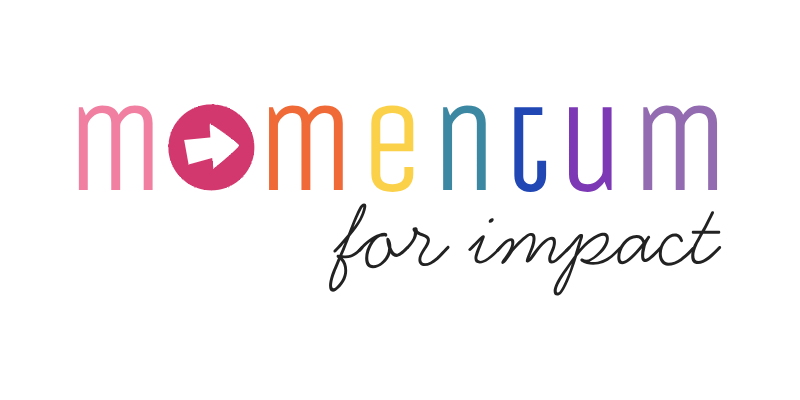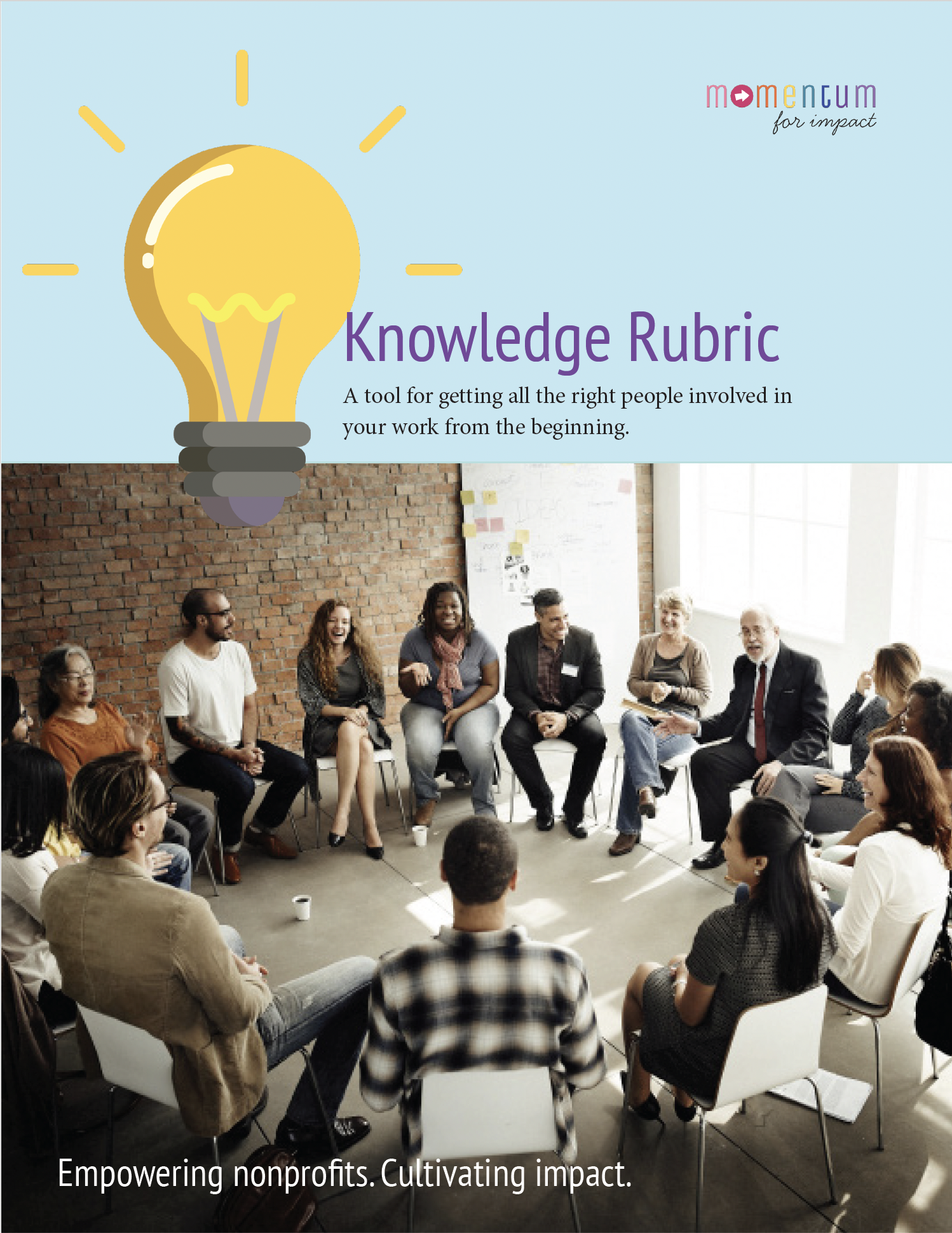Building Authentic Relationships in Your Community: Moving Beyond Assumptions
In the nonprofit sector, we often talk about community engagement as a cornerstone of effective work. Yet too frequently, organizations find themselves creating programs, developing strategic plans, and making decisions without truly understanding all the stakeholders that need to be included in their work. At Momentum for Impact, we believe authentic community relationships begin when we step outside our assumptions and meet our partners where they are.
The Challenge of Our Own Frame of Reference
As humans, we naturally rely on what we know. We seek out people who think like us, share our experiences, and confirm our worldview. This tendency—while comfortable—creates a significant blind spot in our work.
When nonprofit leaders make decisions based solely on their own frame of reference, they miss crucial perspectives that could transform their impact. A food security program designed without input from those experiencing hunger may miss cultural nuances around food. A youth development initiative created without buy-in from all those in the neighborhood who could also support the youth in the program won’t achieve the traction it needs to succeed.
Moving From Assumptions to Authentic Learning
Building meaningful community relationships requires a fundamental shift in approach. Instead of beginning with solutions, we must start with learning:
1. Recognize the limits of your knowledge
Every organization has gaps in understanding. The first step to authentic community relationships is acknowledging these gaps with humility. What don't you know about the community you serve? What do I know about the partners who would be interested in supporting our work and advocating for our organization? What assumptions might you be making based on your own experiences?
2. Redefine what counts as "knowledge"
Too often, organizations privilege certain types of knowledge (academic degrees, professional credentials) while overlooking equally valuable forms of expertise (lived experience, cultural understanding, community history). Authentic relationships flourish when we expand our definition of valuable knowledge.
3. Meet partners where they are
Relationship-building must happen on mutual terms. This means:
Holding meetings in community spaces rather than expecting community members to come to you
Adapting communication styles to make information accessible
Compensating community members for their time and expertise
Adjusting timelines to accommodate different schedules and priorities
Connecting with partners using their language
4. Listen before proposing
When we rush to solutions, we miss the opportunity to deeply understand needs. Create structured opportunities for listening without an agenda beyond relationship-building. What matters to your community partners? What challenges do they identify—and what strengths do they see in their community that you might have overlooked?
The Knowledge Rubric: A Tool for Authentic Engagement
To help organizations move beyond assumptions and build more authentic community relationships, we've developed the Knowledge Rubric. This practical tool guides you through identifying:
What information you truly need to make your work successful
Who holds that information within and beyond your organization
How to prioritize engagement with different knowledge holders
The Knowledge Rubric helps organizations recognize when they're operating from a limited perspective and provides a framework for expanding the voices that inform decision-making.
Download the Knowledge Rubric
A Case Study in Authentic Relationship Building
A local organization approached us with plans to build a program supporting African immigrants in West Michigan. Their initial planning team consisted entirely of program staff with expertise in service delivery and African immigrants themselves but limited connection to the others in the community that support and live with those that they hoped to serve.
Using the Knowledge Rubric, we helped them identify critical knowledge gaps and expand their planning process. We worked together to engage multiple perspectives: African immigrants themselves who could speak to their lived experiences, trusted leaders within various African immigrant communities, other organizations already serving these populations, healthcare providers familiar with immigrant health needs, and community members interested in supporting these efforts.
What made this approach powerful was recognizing that no single perspective—not even that of the immigrants themselves—would provide a complete picture. The trusted community leaders offered insights about cultural nuances that individuals might not have felt comfortable sharing directly. Healthcare providers identified barriers to access that neither program staff nor community members had considered. Organizations already serving these populations shared lessons learned about effective outreach strategies.
From Transactional to Transformational
When organizations move beyond assumptions and engage in authentic relationship-building, their work shifts from transactional to transformational. Programs become more effective because they're grounded in real community needs. Strategic decisions gain community buy-in because those affected have a genuine voice in shaping them.
Most importantly, authentic relationships create space for mutual learning. Organizations may discover community assets and strengths they never recognized before. Community partners gain transparency into organizational processes and opportunities to shape systems that affect their lives.
Begin Your Journey
Ready to move beyond assumptions and build more authentic community relationships? Download our Knowledge Rubric to begin identifying the perspectives your organization needs to truly understand your community.
Remember that relationship-building is a continuous practice, not a one-time project. By committing to ongoing learning and authentic engagement, your organization can build the foundation for lasting community impact.
Momentum for Impact helps nonprofits, foundations, and mission-driven organizations strengthen their operations, enhance sustainability, and maximize their impact through values-driven consulting. Our approach centers equity, collaboration, and practical solutions that create meaningful change.


